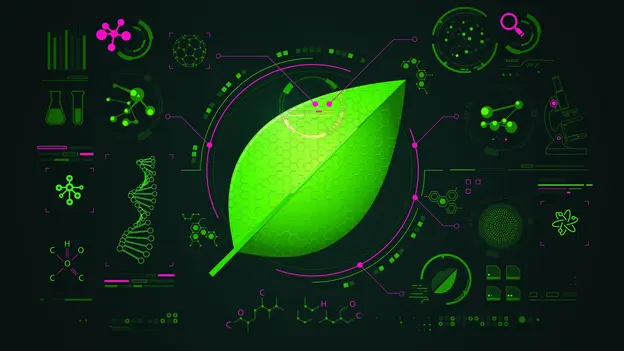Alumni Project
Improving Plant Stress Tolerance in Times of Climate Change
Workshop
The occurrence of extreme climate related events like floods, droughts, frost, and heat waves has substantially increased in the last decades. As a result, worldwide agriculture and crop production systems are severely impacted. At the same time, the world population is growing. To continue to guarantee the food supply, crop productivity is a major area of concern and needs to be increased.
Understanding plant’s adaptive responses
Increasing crop productivity under unfavourable conditions requires a deep understanding of the complex mechanisms governing plant tolerance to environmental constraints, especially in the context of unpredictable climate changes. Today, the availability and technical possibilities to process big data opened the opportunity to systematically apply omics technologies. It allows investigating changes in the genome, transcriptome, proteome, and metabolome in plants when being challenged with abiotic and/or biotic stresses, and hence better understand their adaptive responses. Using omics tools will contribute to conceiving innovative solutions for crop improvement and the development of abiotic stress tolerant cultivars.
Tunisia suffers from water shortages and increasing desertification. Additionally, one third of approximately 570 kilometers of beaches in Tunisia are threatened by rising sea levels. In the framework of their project, AGYA alumni Prof. Dr. Ahmed Debez (Tunisia), Dr. Carsten Montzka (Germany), and Prof. Dr. Salma Balazadeh (Germany/The Netherlands) co-organize a workshop in Hammamet, Tunisia, on recent advances in omics approaches and their potential applications for improving plant tolerance to abiotic stresses. This international event brings together outstanding scientists to present research data and debate on advances on the cutting-edge technologies deployed for investigating stress tolerance in plants (models, crops, and extremophiles). The workshop also constitutes an excellent opportunity for young Tunisian researchers to establish long-lasting international contacts and gain access to high-ranking networks in the field of plant biology.
Longlasting research cooperation on crop genomics
Salma Balazadeh and Ahmed Debez together with AGYA alumna Dr. Henda Mahmoudi from the International Center for Biosaline Agriculture (ICBA) in Dubai have already performed multiple research projects within AGYA dealing with plant stress tolerance and related mechanisms. The workshop is a further building block for the expansion of Arab-Arab-German cooperation in the field of plant biology. Find more information on the collaborative projects here:
- Managing Plants’ Stress to Secure Global Food Supply
- Crop Genomics in the Face of Climate Change
- The 9th International Symposium on Plant Senescence
- Spotlight on survival artists: Saltwater plants as biomass for energy production?
- Disciplines Involved
- Biology, Plant Breeding & Physiology, Environmental Studies
- Cooperation Partners
- Center of Biotechnology of Borj-Cedria, Tunisia
- University of Sfax, Tunisia
- Venue
- Hammamet, Tunisia
- Project Title
- Omics Approaches for Improving Plant Stress Tolerance: From Models to Crops
- Year
- 2021
- Funding Scheme
- Alumni Project
- Countries Involved
- Tunisia, Saudi Arabia, Germany, Sudan, United Arab Emirates



